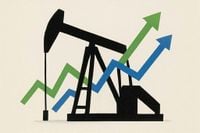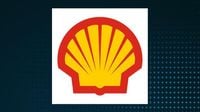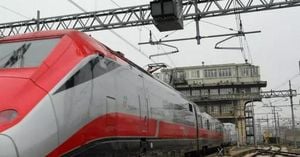Shell plc (NYSE:SHEL) reported robust financial results for the first quarter of 2025, showcasing a remarkable recovery and strategic repositioning within the energy sector. The company announced adjusted earnings of $5.6 billion, marking a significant 52% increase compared to the previous quarter. This impressive performance reflects Shell's ability to navigate a challenging macroeconomic environment while maintaining operational efficiency and shareholder value.
During the earnings call held on May 2, 2025, Shell's CEO Wael Sawan and CFO Sinead Gorman discussed the company's ongoing strategies, including a $3.5 billion share buyback program, which is set to complete by the time of the Q2 results announcement. This buyback initiative represents the 14th consecutive quarter in which Shell has announced buybacks of $3 billion or more, underscoring its commitment to returning capital to shareholders.
Cash flow from operations stood at $11.9 billion, excluding working capital adjustments, while working capital in Q1 2025 recorded an outflow of $2.7 billion. Despite these challenges, Shell's integrated gas production exceeded Q4 levels, although liquefaction volumes were impacted by unplanned outages in Australia.
Shell's upstream availability remained robust, with controllable availability exceeding 98% in key regions including Norway, Nigeria offshore, and Kazakhstan. This operational resilience highlights the company's focus on maximizing output while managing costs effectively.
In terms of strategic developments, Shell completed the acquisition of Pavilion Energy, which bolsters its integrated gas portfolio and expands its LNG trading capabilities. Additionally, the company successfully divested its Energy and Chemicals Park in Singapore and onshore operations in Nigeria, further streamlining its portfolio to focus on high-value assets.
During the call, Sawan emphasized Shell's commitment to unlocking intrinsic value and maintaining a lean operational structure to withstand market cyclicality. He noted that the company aims for a free cash flow per share growth trajectory of over 10% annually through 2030, driven by organic opportunities and prudent capital allocation.
Sinead Gorman highlighted the challenges faced by Shell's low-carbon option businesses in the current macro environment, which has affected their performance. However, she expressed optimism regarding the outlook for LNG trading, citing strong demand and optimization efforts that have yielded positive results despite lower prices.
As part of its ongoing operational improvements, Shell has also initiated significant projects aimed at enhancing its carbon capture and storage capabilities. The Northern Lights project in Norway is set to increase its capacity from 1.5 million tonnes to over 5 million tonnes of CO2 per year by 2028, reflecting Shell's commitment to sustainability.
The Penguins FPSO in the UK North Sea has commenced production, contributing much-needed natural gas to the region and expected to extend the field's life by up to 20 years. Similarly, the Dover project in the Gulf of America has started production, marking another milestone in Shell's upstream operations.
Despite the positive results, both Sawan and Gorman acknowledged the uncertainties in the macroeconomic landscape, which could pose risks to future performance. The company remains vigilant in monitoring market conditions and adjusting its strategies accordingly.
In response to questions regarding Shell's capital expenditure (CapEx) budget, Gorman confirmed that it remains in the range of $20 billion to $22 billion. She emphasized that this budget reflects Shell's strong positioning to manage uncertainties without halting projects. Furthermore, she noted that the Singapore disposal is expected to improve earnings by several hundred million annually, contributing to the company's overall financial health.
When asked about the flexibility of Shell's CapEx budget in a deteriorating macro environment, Gorman reiterated that the company is well-prepared to adapt its spending as necessary. She highlighted Shell's commitment to maintaining buybacks and dividends even in challenging market conditions, with a focus on sustaining shareholder returns.
Looking ahead, Shell is optimistic about the demand trends it is observing in the market. Sawan mentioned stable demand for oil products and LNG, with the company closely monitoring key indicators such as marine bunker fuel and diesel usage, which often signal broader economic trends.
As for the company's organizational culture, Sawan expressed confidence in Shell's evolving culture, particularly in light of recent acquisitions like Pavilion. He emphasized that the company is focused on integrating these assets effectively while ensuring that its operational capabilities are aligned with its strategic goals.
Analysts have responded positively to Shell's performance, with several brokerages reiterating buy ratings on the stock. The consensus rating remains favorable, with a price target reflecting confidence in Shell's growth trajectory.
In summary, Shell plc's Q1 2025 earnings reflect a strong recovery and a strategic focus on maximizing shareholder value through disciplined capital allocation and operational efficiency. As the company navigates the uncertainties of the energy sector, its commitment to sustainability and innovation positions it well for future growth.





